How Does Virus Cause Disease
How does virus cause disease. Viruses and Bacteria DO NOT cause disease. If the host is immune to the virus or bacteria due to previous exposure or vaccination these organisms may not be able to cause disease. Biting Arthropoda may create own portal of entry and cause yellow fever virus.
What are the portals of entry and give examples. Some of the bacteria are intracellular pathogens and therefore have to. Fluid collects in the lung tissue causing pneumonia.
In contrast most humans are infected with circoviruses with no apparent. Viruses gain access to the host through skin and mucous membranes and via the respiratory gastrointestinal and. This cell damage and the host cells immune response against the virus is what causes disease.
For example nearly all humans infected with rabies virus develop a disease of the central nervous system which ultimately leads to death. Infection itself simply means that a pathogen has entered the body but does not necessarily equate with disease since a person can. In a proportion of patients with severe disease the virus over stimulates the immune system rapidly causing damage to the gas exchange sacs in the lung.
Sometimes a virus can cause a disease so deadly that it is fatal. Our bodies often respond with fever heat inactivates many viruses w 1. Thats why some of the most serious communicable diseases known to medical science are viral in origin.
Mucosal conjunctiva oropharynx respiratory tract GI tract and GU tract Skin papilloma virus blood HIV Hepatitis B virus. Answered How does a virus cause disease. Viruses are not cells but non-living infectious particles.
Some viruses cause lethal disease while others do not. The persons immune system detects their presence and eliminates them.
In contrast most humans are infected with circoviruses with no apparent.
Fluid collects in the lung tissue causing pneumonia. Viral pathogens not only infect humans and animals but also plants bacteria protists and archaeans. In a proportion of patients with severe disease the virus over stimulates the immune system rapidly causing damage to the gas exchange sacs in the lung. Viruses are not cells but non-living infectious particles. In contrast most humans are infected with circoviruses with no apparent. If playback doesnt begin shortly try restarting your device. Both bacteria and viruses can cause disease. This cell damage and the host cells immune response against the virus is what causes disease. It is very difficult to kill a virus.
One of the mechanisms that bacteria use to cause disease is through cell damage. Therefore the cellular immune response to a viral infection can cause disease. How bacteria and viruses enter the body To cause disease pathogenic bacteria must gain access into the body. What are the portals of entry and give examples. The persons immune system detects their presence and eliminates them. It is very difficult to kill a virus. However these two types of infectious agents achieve their pathogenicity in different ways.



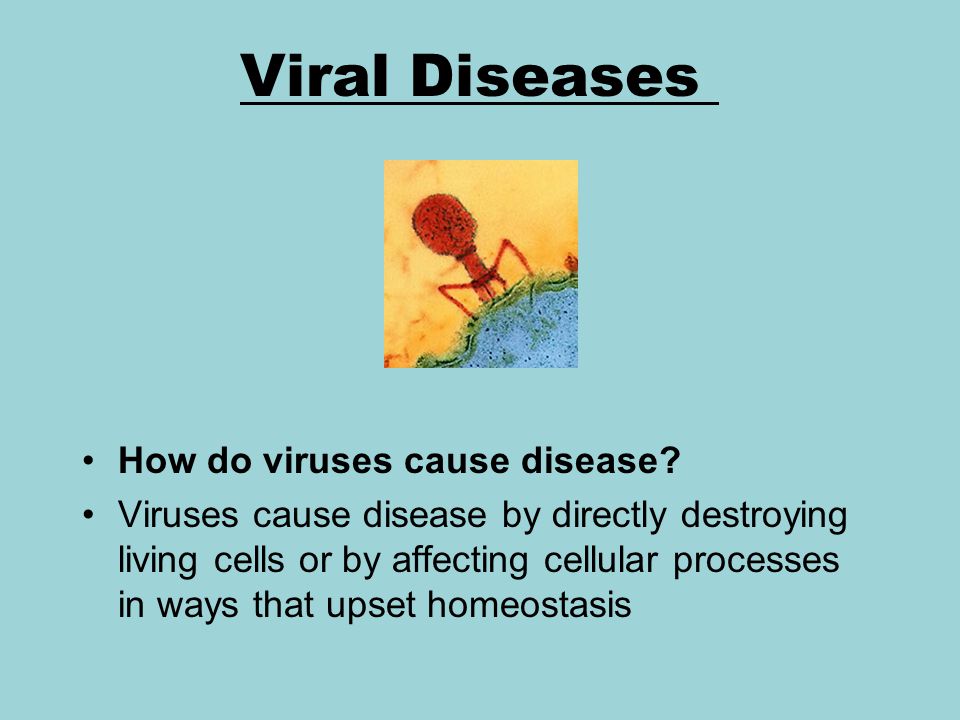

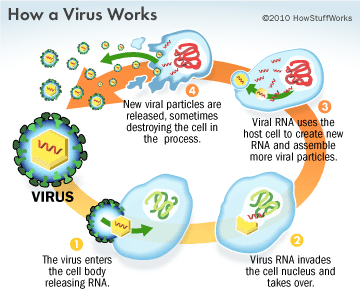







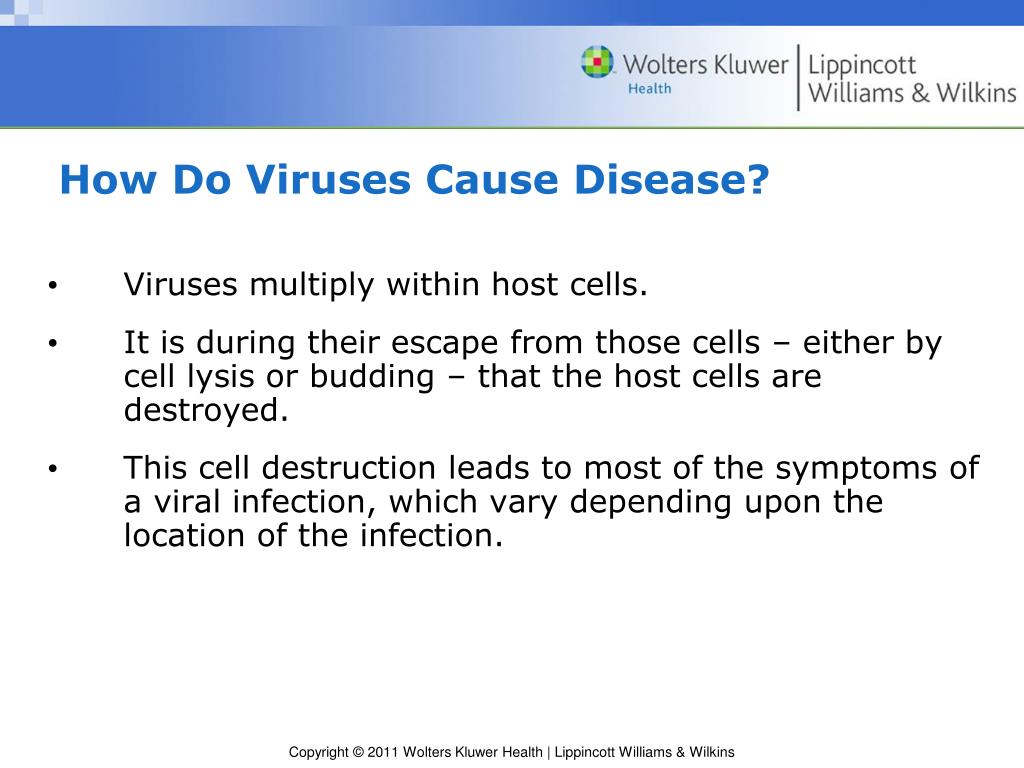
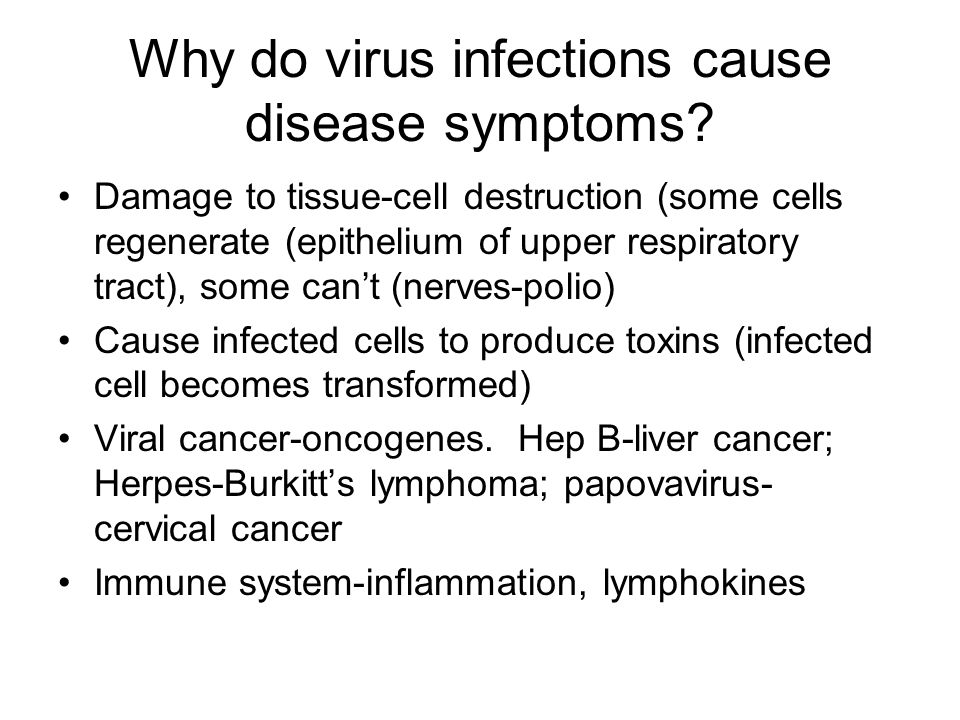

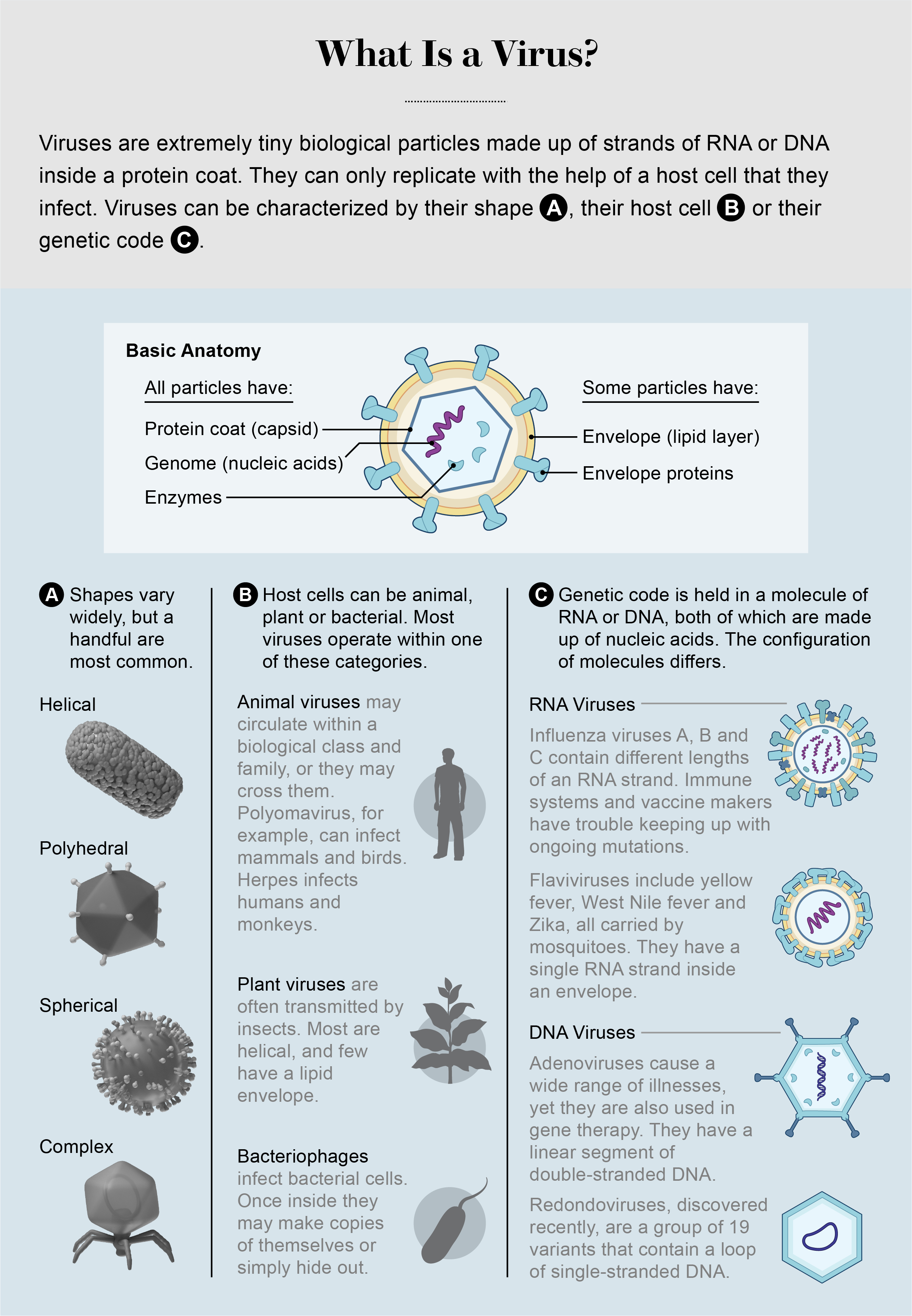





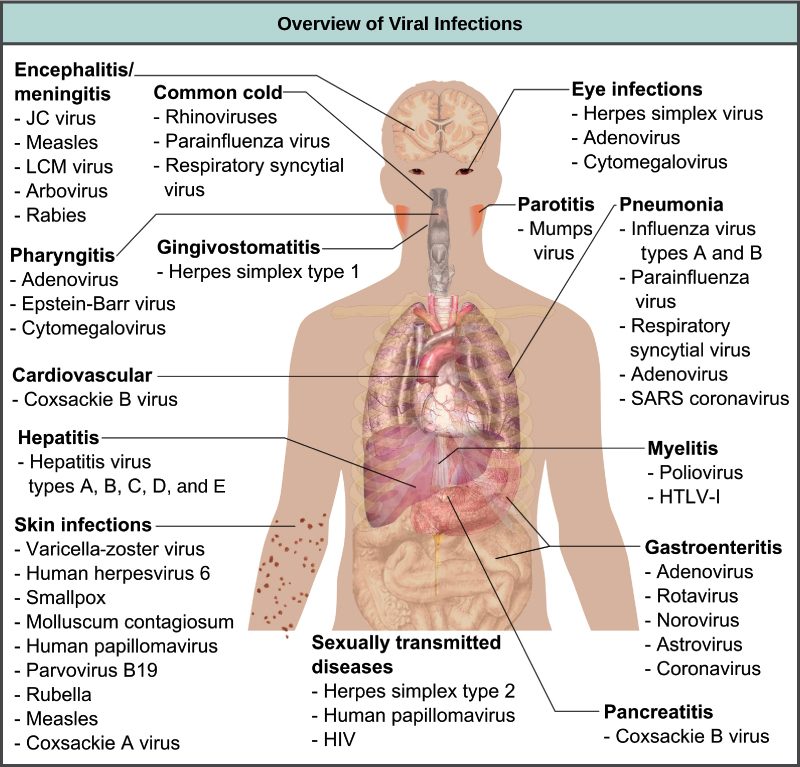



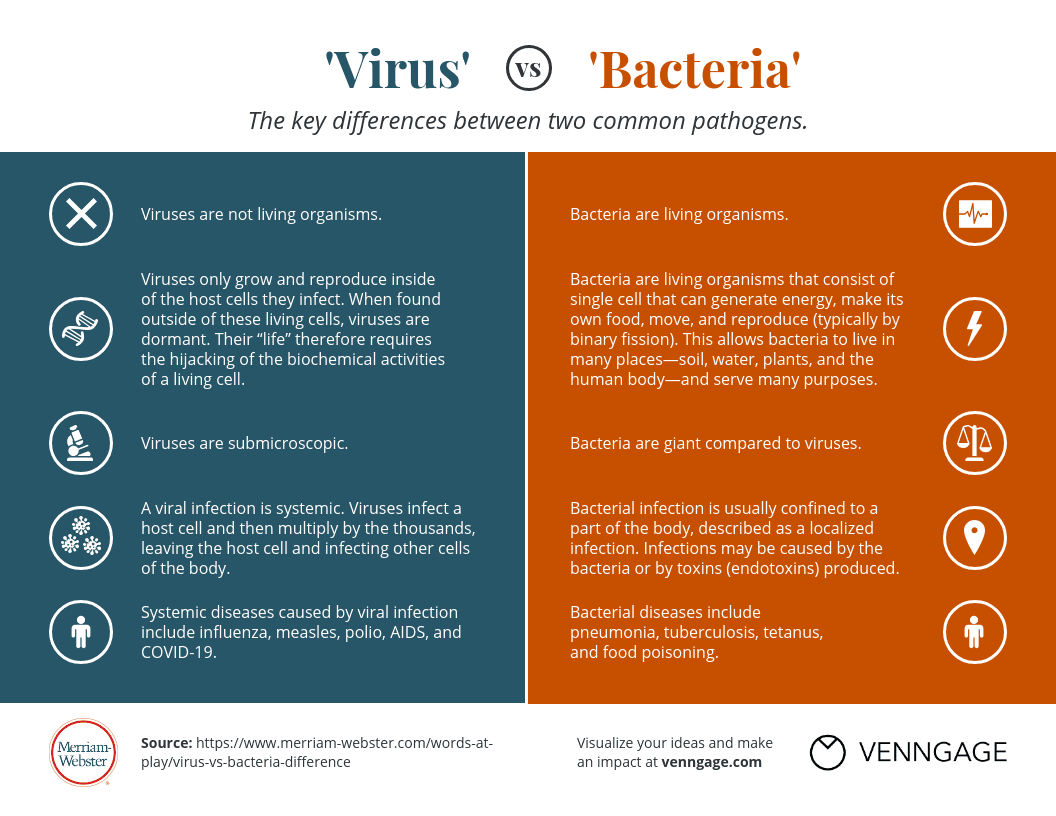
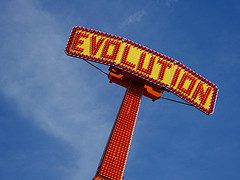
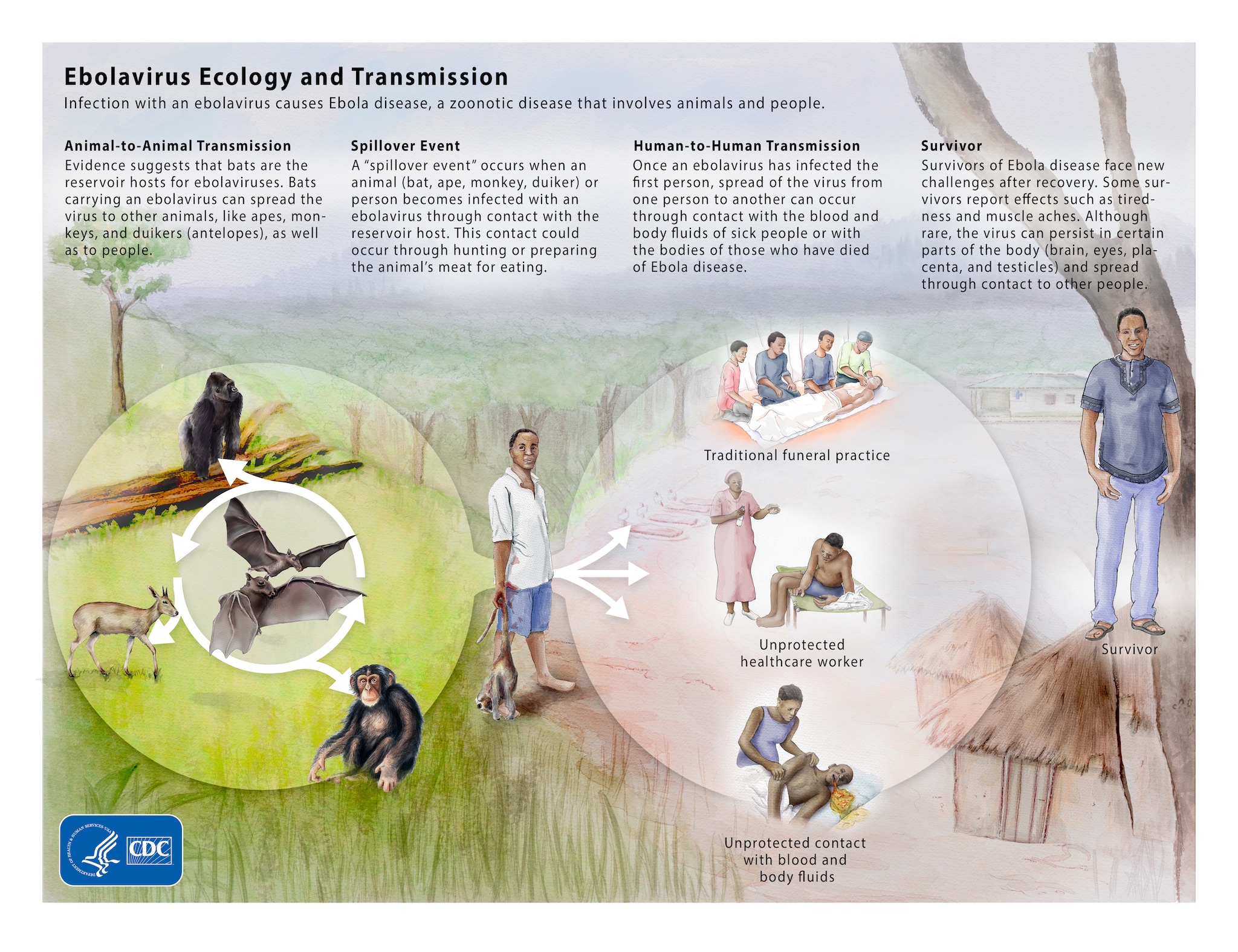










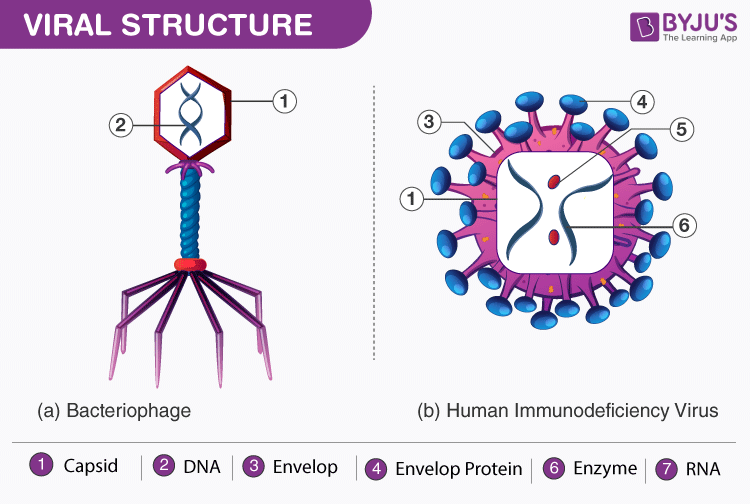



:max_bytes(150000):strip_icc()/brome_mosaic_virus-586feffb5f9b584db358ab85.jpg)

Post a Comment for "How Does Virus Cause Disease"